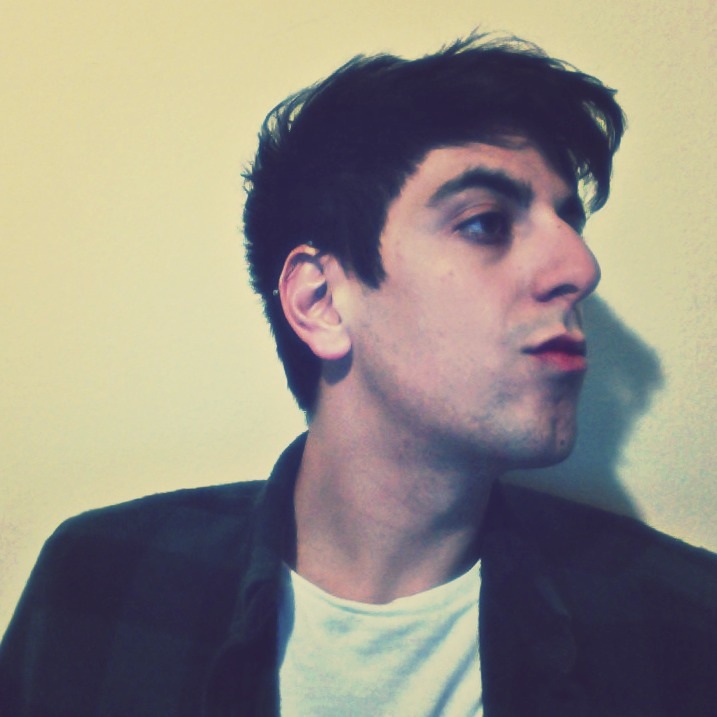One of my goals for 2014 is to live in the moment, to say “yes” to experiences when they present themselves without the need for plans beforehand. So, when I found myself finishing up some work at The Lyric Hyperion Theater and Café and noticing an open mic night about to commence, I thought to myself: “What’s the worst that can happen if you stay? Sitting through a few terrible acts?” Well, it suffices to say that my expectations in that regard were more than met, although, to be fair, every aspiring comedian needs a sounding board to try out potential material. I shouldn’t really complain, anyways; admission was free. What I did not expect, however, was to be treated to a lesson in gender dynamics.
Go to a comedy show, or attend an open mic, or even tune into Comedy Central, and you’ll see what I’m getting at: the stand-up comedy scene is male-centric, plain and simple. While the scene is much more gender-diverse now than it was, say, 30 years ago, the fact remains that male comedians make up the overwhelming majority of players in this industry. For every Tina Fey or Kathy Griffin, there a hundred Aziz Ansaris, Jim Gaffigans, and Louis C.K.s. This was made more than clear at the open mic I attended last week; out of the forty or fifty seats in the audience, only three of them were filled by women. During the set, only one female comedian made it onto the stage. With each open mic’er limited to five minutes and the show taking up the entirety of its allotted two hours, you don’t need to be a math whiz to figure out exactly just how much of the time the male comedians dominated.
You could chalk this up to a number of reasons: maybe it was an off night for the crowd, maybe that specific open mic draws a predominantly male crowd. Neither of those scenarios explains what happened halfway through the show, though. During the first half of the show, one of the male performers got up on stage and insinuated that a female audience member saying “Bless you!” when he sneezed was absolute proof that she wanted to perform oral sex on him. Though the bit didn’t receive many chuckles from the audience (probably due to poor delivery as much as subject matter), it did somehow change the direction the open mic was heading. It was as if that comedian’s joke opened the proverbial floodgates when it came to subsequent comedians doing bits about women and their bodies. Jokes about abortions performed manually (literally, by hand), about the bodily functions of women on their periods – these are just two of the topics used for jokes that I can recall off the top of my head, although I definitely remembering cringing more than twice.
While the object of the comedian’s oral sex joke handled being singled out with grace, all you had to do was glimpse her face for a second and you could imagine just how uncomfortable the comment probably made her feel. Hell, it made me feel uncomfortable and I wasn’t even the subject of the joke. It got me thinking: if that comment had been uttered at someone’s workplace, or at a school, or anywhere public where the sexes intermingle, really, there would have been hell to pay. We’re not living in the 70s anymore; most of us can recognize sexual harassment when we smell it in the air and understand that it’s inherently wrong, even if the EEOC’s definitions don’t strictly apply in this case. So why does it seem like that understanding gets left behind at the coat check the minute we set foot into a comedy club? Why does the label of “comedy” make it okay for these kinds of comments about women, and other minority groups for that matter, to be expressed?
Apparently, this phenomenon hasn’t gone unnoticed. Last year, comedian Robert Lackey investigated gender equality and sexual harassment in the comedy industry by asking female comedians, both well-known headliners and open mic’ers just starting their careers, for their thoughts on the subject. While the responses vary, they suggest that sexual harassment definitely exists, both in terms of the nature of jokes made and unwarranted sexual advances from patrons and comedians alike. One comedian interviewed points to her experience on stage and in the audience, claiming that “[comedy] is the business I’ve felt most harassed by in my time in stand up. Not just personally, but as much so as an observer.” Another realizes that the problem eclipses the comedy industry: “In general it’s sh**ty that we are treated differently… but that’s how it is in a lot of industries. So I don’t know if the solution comes specifically within the comedy community but more a societal shift.” In the meantime, she goes on to say, she tries to avoid and focus less on the sexual harassment in the industry while focusing more on her love for the craft.
This seems to be the consensus gathered from the rest of the interviews: address it if possible, but ignore it the best you can while you try to make the most out of your time in the industry. This is no doubt what Sarah Silverman, Ellen Degeneres, Joan Rivers, and other female comedians have had to do to on their way to the top of the comedy game. But ignoring it, living with it, doesn’t change the fact that these jokes are still being made at the expense of real people’s discomfort like that woman’s in the audience. It doesn’t change the fact that they further the marginalization of a group of people that has been historically oppressed and that continues to face oppression to this very day.
And that’s really no laughing matter.

















